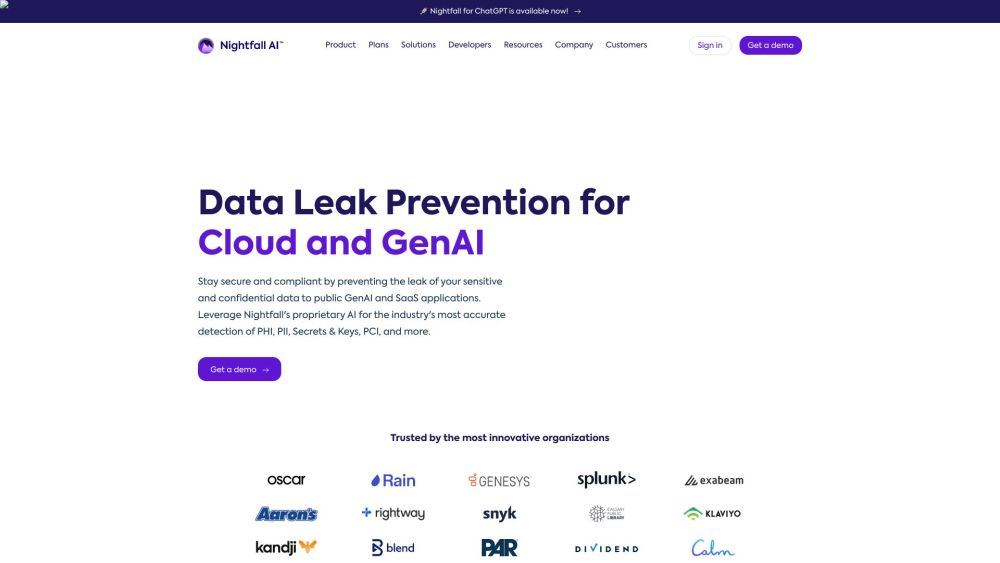Exploring the History of OpenAI's Board: Key Milestones and Evolution
Most people like

Nightfall AI leverages advanced machine learning technology to identify and safeguard sensitive data within SaaS and cloud applications. By prioritizing data protection, Nightfall AI ensures that your information remains secure and compliant.

Discover our AI recipe generator that crafts unique dishes tailored to the ingredients you have on hand. Unleash culinary creativity and transform your pantry into a gourmet kitchen with personalized recipes at your fingertips!

Transform your video content with an AI video generator designed to produce stunning, high-quality videos effortlessly. Whether you're a business seeking to enhance your marketing materials or a content creator aiming to captivate your audience, our advanced AI technology simplifies video production. Discover how you can elevate your storytelling and engage viewers like never before with our innovative video generation tool.

Introducing the Fast & Smart AI Essay Writer – your go-to solution for crafting high-quality essays quickly and effortlessly. Whether you're a student facing tight deadlines or a professional seeking to enhance your writing, our AI-powered tool is designed to generate compelling content in no time. Unlock your writing potential and transform your ideas into well-structured essays with ease!
Find AI tools in YBX
Related Articles
Refresh Articles
